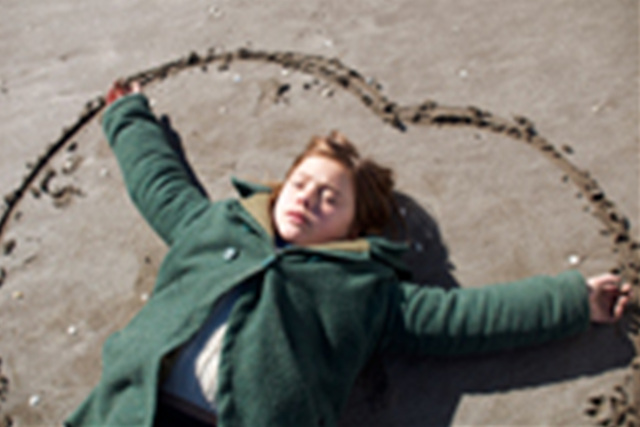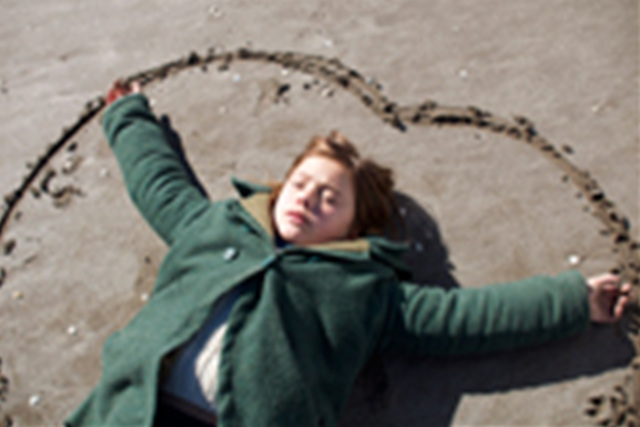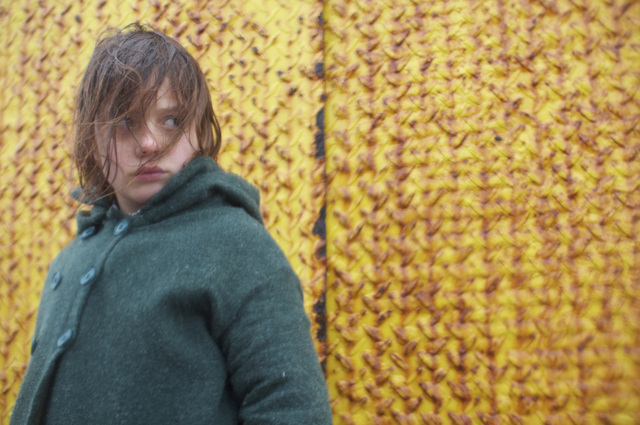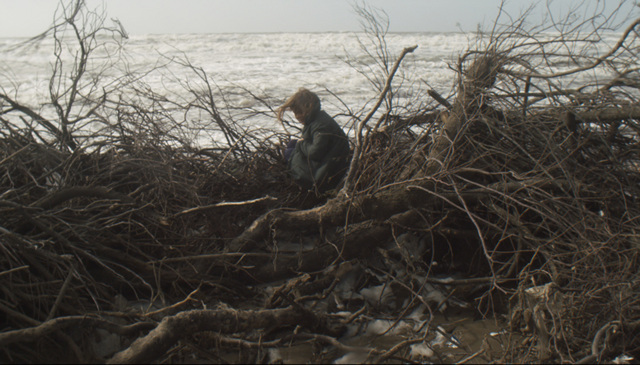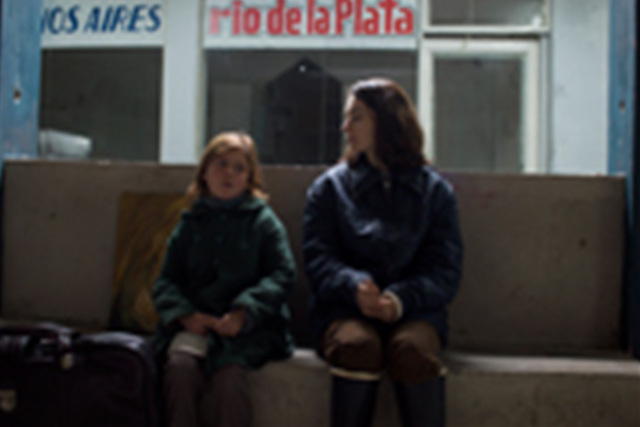14th(2012)
The Prize
Paula MARKOVITCH
- Mexico, France, Poland, Germany
- 2011
- 110min
- HD
- color
- 드라마
SYNOPSIS
Synopsis
The Prize, the story of a mother and a daughter who risked a political escape during the period of military dictatorship in Argentina unfolds from the perspective of the young daughter. Cecilia does not know why she had to leave her hometown, where her missing father is, and why she has to hide her identity. Fascistic discipline and the not-so-funny ceremony praising the military take place in the school, a microcosm of the totalitarian society; and in such unfathomable society, Cecilia senses only apprehension.
Director Paula MARKOVITCH, an Argentinean by birth who chose Mexico as her homeland and residence, attracted the attention of the world as one of Mexico’s new generation of directors through her feature-length debut film that dramatized the autobiographical story of her own childhood. This film, which turned the scene of a rebellious period and Latin America’s historical trauma of massacre carried out by a totalitarian government into a film through the circumstances surrounding the two heroines, acutely as well as delicately points out the aporia formed from the intersection of daily life and politics during a historical maelstrom.
Program Note
The 14th International Women’s Film Festival in Seoul, which selected ‘Spring: An Organizing Hope’ as the keyword, will introduce director Paula MARKOVITCH’s The Prize, which keenly observes the apprehensive mood of the time, as the opening film. ‘An Organizing Hope’ will paradoxically blossom when we objectively look into the moments of catastrophe.
The Prize, the story of a mother and a daughter who risked a political escape during the period of military dictatorship in Argentina unfolds from the perspective of the young daughter. Cecilia does not know why she had to leave her hometown, where her missing father is, and why she has to hide her identity. Fascistic discipline and the not-so-funny ceremony praising the military take place in the school, a microcosm of the totalitarian society, and in such unfathomable society, Cecilia senses only apprehension.
Director Paula MARKOVITCH, an Argentinean by birth who chose Mexico as her homeland and residence, attracted the attention of the world as one of the representative Mexican directors through her feature-length debut film that dramatized the autobiographical story of her own childhood. This film, which turned the scene of a rebellious period and Latin America’s historical trauma of massacre carried out by a totalitarian government into a film through the circumstances surrounding the two heroines, acutely as well as delicately points out the aporia formed from the intersection of daily life and politics during a historical maelstrom. (HONG So-in)
PROGRAM NOTE
Synopsis
The Prize, the story of a mother and a daughter who risked a political escape during the period of military dictatorship in Argentina unfolds from the perspective of the young daughter. Cecilia does not know why she had to leave her hometown, where her missing father is, and why she has to hide her identity. Fascistic discipline and the not-so-funny ceremony praising the military take place in the school, a microcosm of the totalitarian society; and in such unfathomable society, Cecilia senses only apprehension.
Director Paula MARKOVITCH, an Argentinean by birth who chose Mexico as her homeland and residence, attracted the attention of the world as one of Mexico’s new generation of directors through her feature-length debut film that dramatized the autobiographical story of her own childhood. This film, which turned the scene of a rebellious period and Latin America’s historical trauma of massacre carried out by a totalitarian government into a film through the circumstances surrounding the two heroines, acutely as well as delicately points out the aporia formed from the intersection of daily life and politics during a historical maelstrom.
Program Note
The 14th International Women’s Film Festival in Seoul, which selected ‘Spring: An Organizing Hope’ as the keyword, will introduce director Paula MARKOVITCH’s The Prize, which keenly observes the apprehensive mood of the time, as the opening film. ‘An Organizing Hope’ will paradoxically blossom when we objectively look into the moments of catastrophe.
The Prize, the story of a mother and a daughter who risked a political escape during the period of military dictatorship in Argentina unfolds from the perspective of the young daughter. Cecilia does not know why she had to leave her hometown, where her missing father is, and why she has to hide her identity. Fascistic discipline and the not-so-funny ceremony praising the military take place in the school, a microcosm of the totalitarian society, and in such unfathomable society, Cecilia senses only apprehension.
Director Paula MARKOVITCH, an Argentinean by birth who chose Mexico as her homeland and residence, attracted the attention of the world as one of the representative Mexican directors through her feature-length debut film that dramatized the autobiographical story of her own childhood. This film, which turned the scene of a rebellious period and Latin America’s historical trauma of massacre carried out by a totalitarian government into a film through the circumstances surrounding the two heroines, acutely as well as delicately points out the aporia formed from the intersection of daily life and politics during a historical maelstrom. (HONG So-in)
Director
-
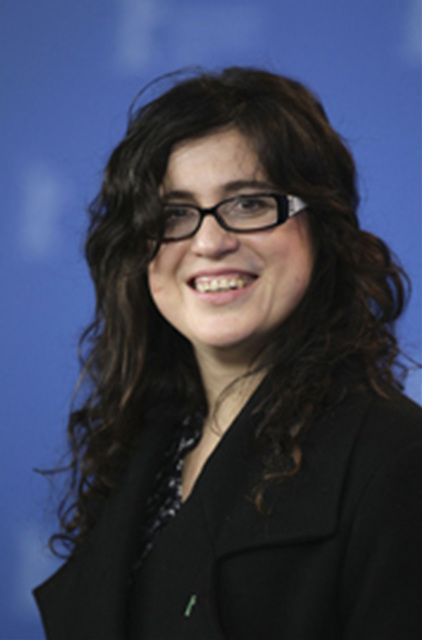
Paula MARKOVITCHPaula MARKOVITCH
Born in Buenos Aires, Argentina. At the age of twelve, she wrote and published: poetry, theater, radio and fiction. She moved to Mexico where she also considers as her native country. She began teaching in the screenplay writing area of the CCC(Center of Cinematographic Capacitation). The Prize is her first work as a director of a full-length film.
Credit
- ProducerIzrael MORENO
- Cast Paula GALINELLI HERTZOG, Sharon HERRERA, Laura AGORRECA
- Screenwriter Paula MARKOVITCH
- Cinematography Wojciech STARON
- Art director Oscar TELLO
- Editor Lorena MORICONI
- Sound Isabel MUÑOZ

